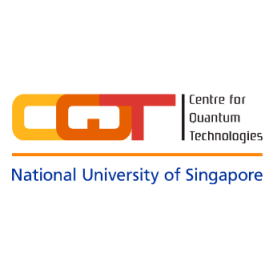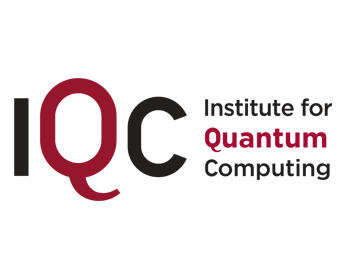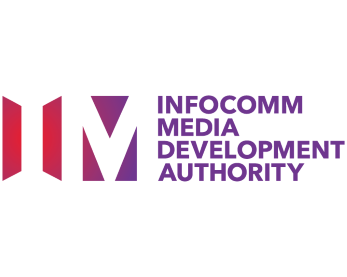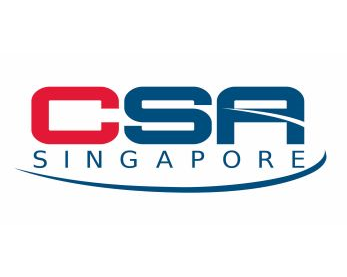INFO: This event has reached maximum capacity and registration is closed.
ETSI and the Institute for Quantum Computing are pleased to announce the 10th edition of their joint event, the ETSI/IQC Quantum Safe Cryptography Conference.
This year, the event will be hosted physically by the Centre for Quantum Technologies, National University of Singapore. on 14-16 May 2024 in Singapore.
Background
We increasingly rely on cyber technologies, and hence are ever more vulnerable to cyber-attacks. As progress toward a cryptographically relevant quantum computer advances, these attack vectors grow and the imperative to prepare for a transition to quantum secure technologies continues to increase.
In response, standardization efforts are accelerating; the initial NIST PQC standards are due in 2024, and our working groups here at ETSI are active in evaluating these and how they will fit into existing protocols, applications and public-key infrastructures. Solutions are therefore starting to become commercially available, best practices are being developed and shared, and the ability to transition in a secure and cost-effective way continues to increase. This is a continually evolving and complex journey and much remains to be understood and navigated.
About the Conference :
Designed for members of the business, government, and research communities with a stake in cryptographic standardization, this forward-looking conference will facilitate the knowledge exchange and collaboration required to transition cyber infrastructures and business practices to make them safe in an era with quantum computers. It aims to showcase both the most recent developments from industry and government and cutting-edge potential solutions coming out of the most recent research.
The Conference is split into two very different parts:
14 May: Executive Track
designed for business executives, including CEOs, CTOs and CISOs. The executive track will outline the state of the quantum threat and quantum risk management via various Keynote speeches and high-level discussions on government actions and approaches, on the shift to quantum-safe cryptography in the financial sector and on the transition to a quantum secure cryptographic infrastructure viewed from various angles.
Participate in the pre-event survey and share your view now to input the discussions in the Executive Track!
15 - 16 May 2024: Technical Track
will dive into the greater details and specifics of how new cryptographic technologies are being developed to ensure security in a post-quantum era. We will look at the efforts taking place worldwide, such as the security of existing solutions, standards initiatives and practical deployments taking place today.
The coffee breaks will also feature poster sessions of even more cutting-edge research projects.
Attendance is open to all and free of charge upon registration The event having reached maximum hosting capacity, registration is closed.
Why should one attend?
This conference is a perfect opportunity to determine your next steps, learn from experts and network with others going through the process. Nowhere else can you encounter the latest research in such an actionable way, with specific tracks for both executives and technical experts.
Come along to learn more about this rapidly evolving field and meet the key players behind these important maturing technologies.
ETSI and IQC are thankful for the dedication of the following Programme Committee Members:
- Michele Mosca, Institute for Quantum Computing, University of Waterloo (Programme Committee Chair)
- Jaya Baloo, Rapid7
- Johannes Buchmann, TU Darmstadt
- Matthew Campagna, Sr. Principal Engineer, Amazon Web Services
- Sofia Celi, Brave
- Lily Chen, NIST
- Jaime Gómez García, Grupo Santander
- Alexander Ling, NUS
- Sarah McCarthy, IQC, University of Waterloo
- Máire O'Neill, Queen's University Belfast
- Mark Pecen, Approach Infinity, Inc.
- Bart Preneel, KU Leuven
- Gregoire Ribordy IDQuantique (Replacing Nicolas Gisin)
- Johanna Sepulveda, Airbus
- Masahiro Takeoka, National Institute of Information and Communications Technology, Japan
- Martin Ward, Toshiba Europe
- Colin Whorlow, Head of International Standards, NCSC
- Hong Xiang, Chongqing University
The maximum hosting capacity is reached already and registration is now closed.
- Quantum-Safe Message Authentication for Industrial IOT using QKD with LPN
Teik Guan Tan, pQCee - Security and Performance Assessment in the Design of Quantum Key Distribution Networks
Peter Horoschenkoff, Rohde & Schwarz Cybersecurity GmbH, Technical University of Munich - Simple and efficient QKD Key Push Protocol
Noel Farrugia, Merqury Cybersecurity - Root CA Certificate Rekeying in the Scenario of Post Quantum Migration
Guilin Wang, Huawei International Pte Ltd - Numerical Methods Evaluation for Key Rate Computation in Quantum Key Distribution
Rebecca Chung, Nanyang Technological University - On the certification of quantum random number generators
Kaiwei Qiu from Nanyang Technological University - Standardization of Cryptography Bill of Materials in OWASP CycloneDX
Basil Hess IBM Research - Enhancing Resilience in IETF Security Protocols: A Response to the Quantum Threat
Tony Rosati, evolutionQ - Building a Quantum-Safe Future: From Vision to Implementation
Ujjwal Kumar, Microsoft - Establishing Shared Secret Keys on Quantum Line Networks: Security and Implementation
Marc Kaplan, Veriqloud.com - QRNG in Action: Practical Strategies for Implementing Quantum-Resistant Cryptography Systems
Jose Martinez, Quside - QKD Authentication Using Quantum-Safe Lightweight Cryptography: Analysis and Use Cases
Aida Garcia Callejo, Spanish National Research Council (CSIC)
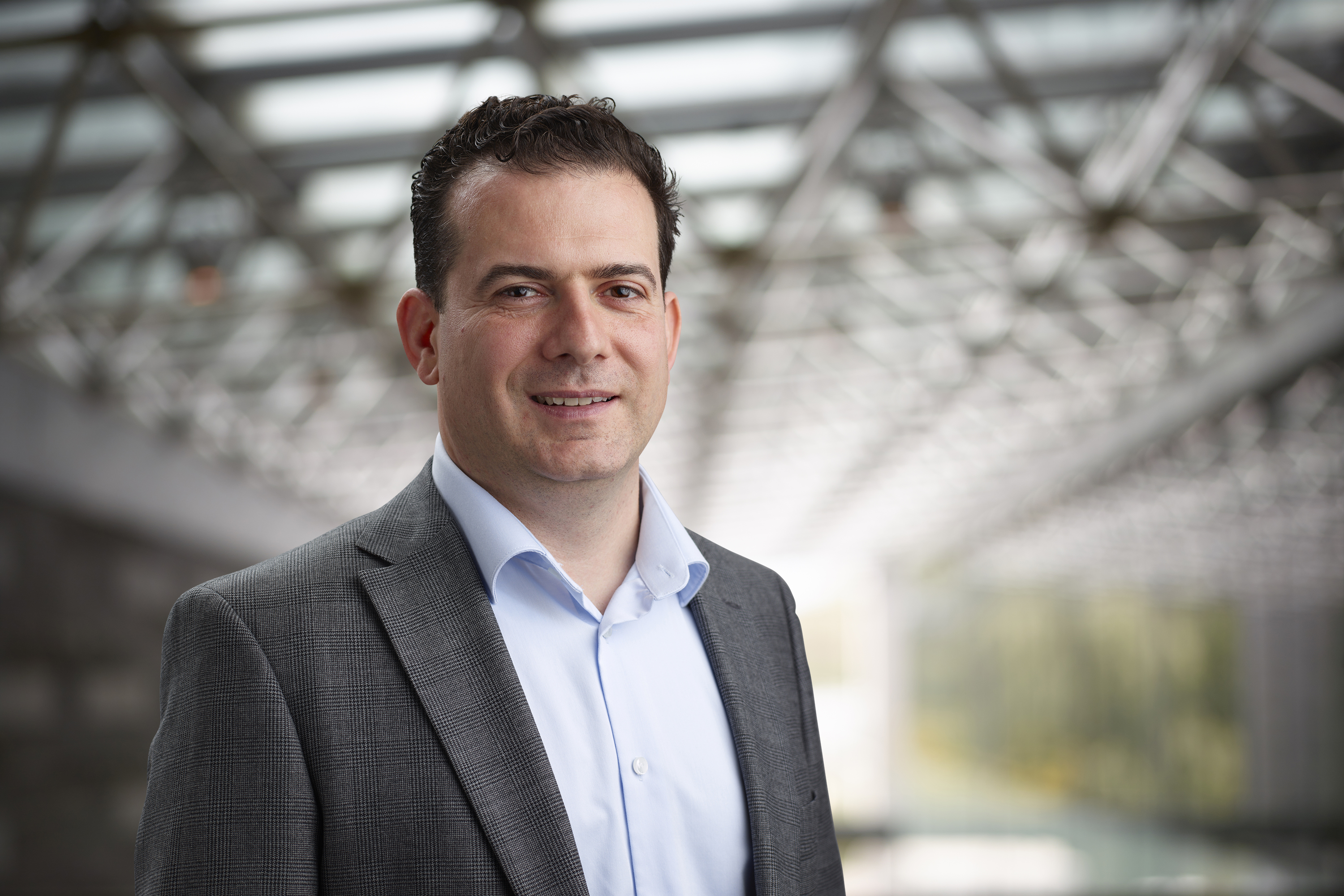 Michele Mosca - University of Waterloo, Programme Committee Chair
Michele Mosca - University of Waterloo, Programme Committee Chair
Michele Mosca is co-founder of the Institute for Quantum Computing at the University of Waterloo, a Professor in the Department of Combinatorics & Optimization of the Faculty of Mathematics, and a founding member of Waterloo's Perimeter Institute for Theoretical Physics. He is co-founder and CEO of the quantum-safe cybersecurity company, evolutionQ, and co-founder of the quantum software and applications company, softwareQ. He serves as Chair of the board of Quantum Industry Canada.
He started working in cryptography during his undergraduate studies and obtained his doctorate in Mathematics in 1999 from the University of Oxford on the topic of Quantum Computer Algorithms. His research interests include algorithms and software for quantum computers, and cryptographic tools designed to be safe against quantum technologies.
He co-founded the not-for-profit Quantum-Safe Canada, and the ETSI-IQC workshop series in quantum-safe cryptography and is globally recognized for his drive to help academia, industry and government prepare our cyber systems to be safe in an era with quantum computers.
Dr. Mosca’s awards and honours include 2010 Canada's Top 40 Under 40, Queen Elizabeth II Diamond Jubilee Medal (2013), SJU Fr. Norm Choate Lifetime Achievement Award (2017), and a Knighthood (Cavaliere) in the Order of Merit of the Italian Republic (2018).
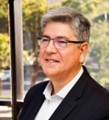 Antonio Abad, Hispasat
Antonio Abad, Hispasat
"Antonio Abad (Almeria, Spain, 1963) is an MSc in Aeronautical Engineering and graduate in Senior Management, as well as academician at the International Academy of Astronautics and Académie de l’Air et de l’Espace, associate fellow of the American Institute of Aeronautics and Astronautics and senior member of the Institute of Electric and Electronic Engineers.
He has developed most of his career at HISPASAT in different engineering and management responsibilities becoming Chief Technical Officer since 2003, being responsible for the definition and implementation of satellite systems, launchers, control centers, and ground stations, as well as several R&D initiatives.
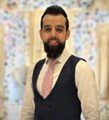 Obada Alia, JPMorgan Chase & Co
Obada Alia, JPMorgan Chase & Co
Obada Alia has been a Senior Applied Research Associate in Quantum Communications and Cryptography at the Global Technology Applied Research Center of JPMorgan Chase & Co. since May 2023. Previously, he held the position of Senior Research Associate at the University of Bristol, where he worked on the coexistence of quantum and classical technologies in dynamic networks. Obada holds a Ph.D. in Quantum Communication from the University of Bristol, along with master's and bachelor's degrees in Telecommunications Engineering and Electrical and Electronics Engineering from the same university. His doctoral research focused on the integration of quantum and classical technology within telecommunication infrastructure. Throughout his academic journey, Obada actively contributed to prominent projects, including the UK Quantum Communication Hub 1&2 and the H2020 UNIQORN project.
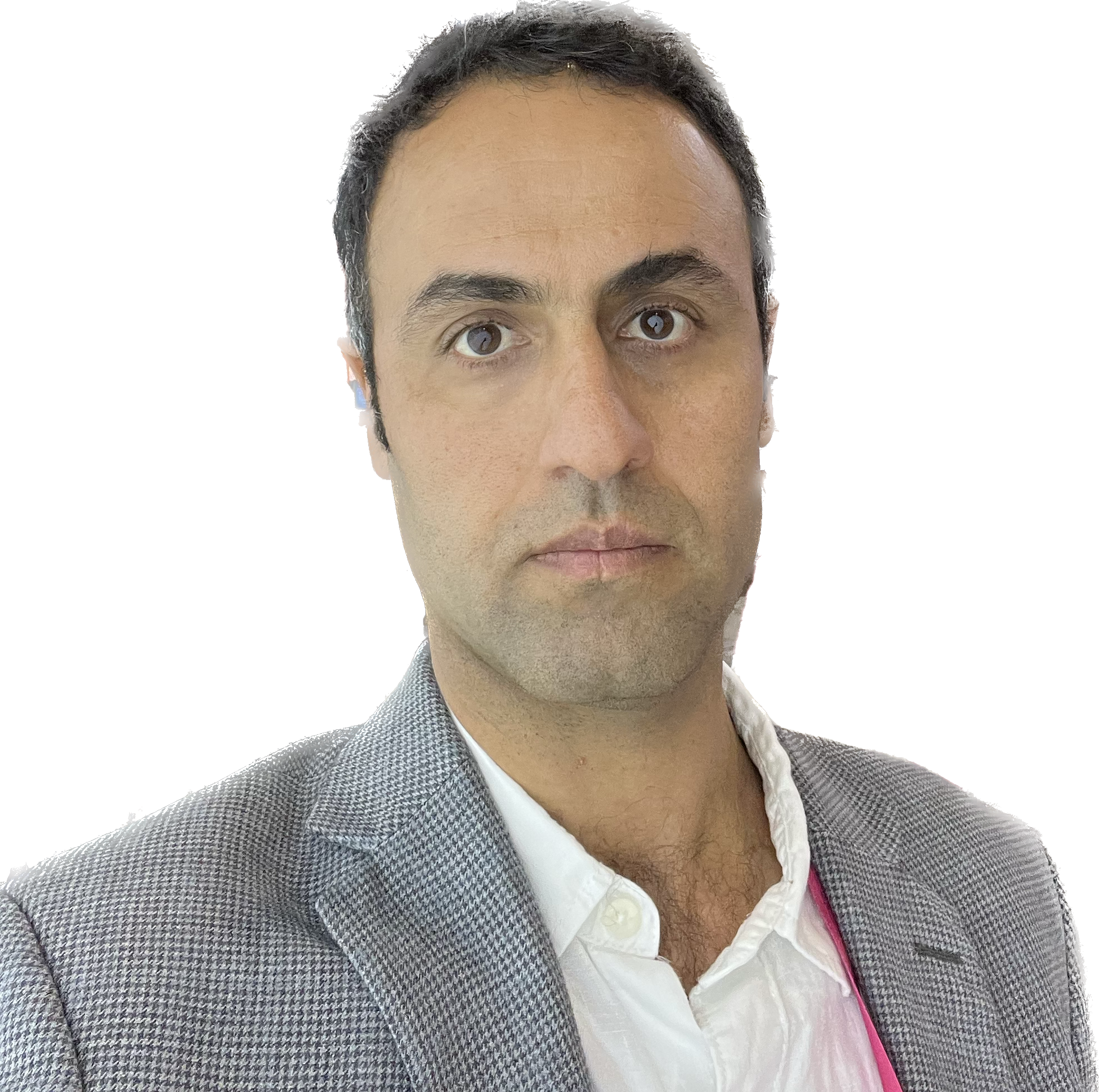 Reza Azarderakhsh - FAU and PQSecure
Reza Azarderakhsh - FAU and PQSecure
Dr. Azarderakhsh is a Professor at FAU as well as founder and CEO at PQSecure. He received his PhD from Western University in Computer Engineering and was an NSERC Postdoc research fellow at University of Waterloo. Dr. Azarderakhsh is an established cryptographic engineer for more than a decade with main focus on post-quantum cryptography. He is also an associate editor of IEEE Transactions on Circuits and Systems (TCAS) Cryptographic Track. He has been co/author of more 120 papers in top-tier conferences and journals in various areas such as protocols design, cryptanalysis, secure implementations and integrations of post-quantum cryptography.
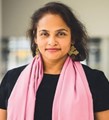 Jaya Baloo, Rapid 7 – Member of the Programme Committee
Jaya Baloo, Rapid 7 – Member of the Programme Committee
Jaya Baloo is the CSO of Rapid7 and has been working in the field of information security with a focus on secure network architecture for over 20 years. She is the former CISO of Avast, and prior to that was CISO at KPN, the largest telecommunications carrier in the Netherlands. Jaya serves on boards of the NL’s National Cyber Security Centre, TIIN Capital, the NOS, and was the former Vice Chair of the EU Quantum flagship. She is also on the faculty at Singularity University.
Jaya is recognized as a top 100 global CISO and ranks among the top 100 security influencers worldwide. In 2019, she was selected as one of the 50 most inspiring women in the Netherlands by Inspiring Fifty. In 2022 she received an honorary doctorate from the University of Twente for her contributions to the field of Cybersecurity.
 Filipe Beato, World Economic Forum
Filipe Beato, World Economic Forum
Filipe leads Cyber Resilience and Quantum security at the Centre for Cybersecurity at the World Economic Forum. Filipe has 10+ years of experience in helping organizations shaping and delivering global cyber, innovation and digital strategies and transformations by bridging a strong technical background with business strategy. Previous, he worked as a management consultant at BCG and PwC, and holds a PhD in Applied Cryptography from the University of Leuven.
Loula Beck, SES Techcom
Loula Beck is a Software Engineer at SES Techcom. She graduated from Grenoble INP-Ensimag in 2018 with an embedded system and software Master of Engineering. Since then, she contributed to various Quantum Key Distribution projects, with a special focus on software design and development of Key Management System for space specific QKD. She is currently responsible for the design and development of some of the EAGLE-1 payload software components.
Robert Bedington is the co-founder and CTO of a quantum communications company that specializes in satellite quantum key distribution (QKD). He was formerly a senior research fellow at the Centre for Quantum Technologies (CQT) at the National University of Singapore, where he led the satellite team for the SpooQy-1 CubeSat mission. SpooQy-1 was launched in 2019 and successfully demonstrated quantum entanglement in space. Robert has a PhD in space plasma physics from University College London and has been recognized by MIT as one of the ten Innovators under 35 for the Asia Pacific region in 2019.
Davide Bacco is an Associate Professor at the Department of Physics and Astronomy of the University of Florence and co-founder of QTI s.r.l., the first Italian startup developing and commercializing quantum communication systems. He received his degree in Engineering Telecommunication in 2011 at the University of Padova, Italy. In 2015 he finished in the same University the Ph.D. degree on Science Technology and Spatial Measures (CISAS). He has been working at the Department of Electronics and Photonics Engineering at the Technical University of Denmark (DTU) for the last 7 years. His research interests regard quantum communications, quantum cryptography and integrated photonics for quantum communications.
 Giuseppe Bruno, Bank of Italy
Giuseppe Bruno, Bank of Italy
Giuseppe Bruno is an applied computer scientist working in the Economics and statistics department of the Bank of Italy since more than 30 years. Presently, He is the head of the IT Division at economics and statistics. This year he is leading a team for promoting quantum safe communications within the financial industry. In 2022 he attended a short research period at the Institute of Quantum Computing of the University of Waterloo exploring the possible roles of Quantum Computing for economic applications. Giuseppe Bruno holds a master degree in engineering and a master in telecommunication system from the Reiss Romoli school. In his career Giuseppe Bruno has written around 40 articles on different applications ranging from econometric modeling, big data, Machine Learning and Quantum Computing.
Tim Callan, Sectigo
Chief Compliance Officer Tim Callan has 20 years of experience in the SSL and PKI technology spaces, including leadership positions at Sectigo, DigiCert, VeriSign, and Symantec. Tim is a founding member of the CA/Browser Forum, a former Director of the Online Trust Alliance, and a current Director of the PKI Consortium. Tim is co-creator and co-host of Root Causes, the popular podcast dedicated to PKI and digital identity.
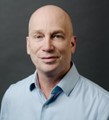 Matthew Campagna, Amazon Web Services - Member of the Programme Committee
Matthew Campagna, Amazon Web Services - Member of the Programme Committee
Matthew Campagna is a Sr. Principal Engineer & Cryptographer for Amazon Web Services Inc.’s. He oversees the design and analysis of cryptographic solutions across AWS. He is a member of the ETSI Security Algorithms Group Experts (SAGE), and Chairman of ETSI TC CYBER’s Quantum Safe Cryptography group. Previously he managed Certicom/BlackBerry’s Cryptography Research Group focused on the development of intellectual property and standardization for elliptic curve cryptography. He holds a doctorate in Mathematics from Wesleyan University.
Dr Mark Carney is a researcher and Technical Specialist in Quantum Cybersecurity and ML at a bank. He has specialist knowledge in many areas, including cryptography, embedded systems, quantum information and maths. He has contributed a chapter to various papers and a book, and consults to numerous companies and research groups, including academic and commercial. He co-founded and is CTO at Quantum Village.
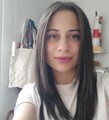 Sofia Celi, Brave - Member of the Programme Committee
Sofia Celi, Brave - Member of the Programme Committee
Sofía Celi is a cryptography researcher at Brave. She researches around post-quantum cryptography, privacy-enhancing technologies and secure messaging.
She is the co-chair for the PQUIP working group at IETF, of the HRPC group at IRTF and of anti-fraud community group at W3C.
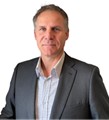 Martin Charbonneau, Nokia
Martin Charbonneau, Nokia
Martin Charbonneau is a seasoned professional in the field of emerging technologies and secure networking. As part of Nokia’s Network Infrastructure Business Group, he has dedicated over a decade to driving innovation in areas like Neutral Host and digital infrastructures. Recently, Martin’s focus has shifted toward Quantum-Safe networking, recognizing the urgency of securing communication infrastructures against quantum threats. His current role involves spearheading efforts to provide secure connectivity solutions that mitigate risks posed by quantum computing. Before this, Martin spearheaded Nokia’s Emerging Product unit, driving innovations in Mobile transport convergence, Cloud/edge transport, and software & services transport automation. His extensive experience in product management, network planning, and Professional Services uniquely positions him to lead the charge in Quantum-Safe Networks. Martin holds a Bachelor of Science in Space Sciences from the Canadian Royal Military College (RMC, St-Jean, Canada).
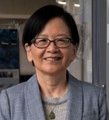 Lily Chen, NIST - Member of the Programme Committee
Lily Chen, NIST - Member of the Programme Committee
Dr. Lily (Lidong) Chen is a mathematician and NIST fellow. She served as the manager of Cryptographic Technology Group for more than a decade before she was selected as a NIST fellow in 2023. She has led the effort in developing cryptographic standards published in Federal Information Processing Standards (FIPS) and NIST Special Publications (SP). She is a pioneer in developing post-quantum cryptography standards and has been actively explored many advanced cryptography areas for standardization. Her research interests include cryptography, network security, and security in communications. Dr. Chen has actively contributed to cryptographic and security standards development by IEEE-SA, ISO, and other standards organizations.
Daniel Cuthbert, Santander Group
Daniel currently leads the Cyber Security Research division at Santander Group. With a rich career spanning over 20 years, he has experienced firsthand the evolution of hacking, from its early days as a pursuit of a small group of tech enthusiasts to its current status as a sophisticated activity often associated with organized crime and state-sponsored operations. His deep involvement in the cybersecurity community is highlighted by his significant contributions to the Open Web Application Security Project (OWASP). As the original co-author of the OWASP Testing Guide, first released in 2003, and the co-author of the OWASP Application Security Verification Standard (ASVS) Daniel extends his influence through his roles on the UK Government Cybersecurity Advisory Board and the Blackhat Review Board, where he contributes to shaping cybersecurity strategies and policies at both national and international levels.
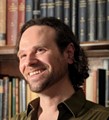 Michael Dascal, Fidelity Investments
Michael Dascal, Fidelity Investments
Michael leads the Quantum and Future Computing Incubator at the Fidelity Center for Applied Technology, and is responsible for monitoring the quantum ecosystem and exploring collaboration, engagement, and community development opportunities. He has given multiple technical and non-technical talks in quantum computing and quantum information, and is dedicated to promoting an optimistic, but realistic understanding of quantum technologies and the quantum timeline.
Michael’s background includes a combination of industry and academic experience, including a decade in marketing and communications for Fortune 100 brands. He holds a PhD in foundations of quantum mechanics and quantum information and degrees in philosophy, physics, and linguistics.
Jintai Ding, Tsinghua University
Jintai Ding is a professor at Tsinghua University and was a Charles Phelps Taft professor at the University of Cincinnati. He received his Ph.D. from Yale in 1995. He was a lecturer at RIMS of Kyoto University for 1995-1998. His research was originally in quantum affine algebras, where he was credited for the invention of the Ding-Iohara-Miki algebra. His current interest is in post-quantum cryptography. He and his colleagues developed the Rainbow signature and the LWE-based key exchange schemes. Rainbow is a third round candidate for the NIST post-quantum standardization process. He and his colleagues completely broke a NIST second round post-quantum signature candidate LUOV and a third round candidate GeMSS (HFEv-), which won the honorable mention of the best paper award for crypto 2021. He is one of the designers of Kyber KEM scheme which is selected as a key establishment standard by the NIST of USA, for which he licensed his patent.
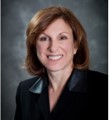 Donna F. Dodson, EvolutionQ - - Member of the Programme Committee
Donna F. Dodson, EvolutionQ - - Member of the Programme Committee
Donna F Dodson is a senior strategic advisor at evolutionQ working with the leadership team on the strategic direction of the company to help scale their technology offerings around quantum delivery networks. Donna has an extensive background in cybersecurity, standards, risk management and cryptography. She held technical and policy leadership positions at the National Institute of Standards and Technology and the US Department of Commerce. Donna led NIST’s cybersecurity program to develop standards, guidelines, best practices and resources. She was the inaugural director of the National Cybersecurity Center of Excellence. As the Commerce Department’s cybersecurity advisor, Donna counseled the Secretary and represented the department in strategic policy decision-making forums.
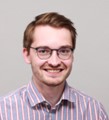 Vincent Dunning, TNO
Vincent Dunning, TNO
Vincent is a scientist in the Applied Cryptography & Quantum Algorithms department of the Netherlands Organisation for Applied Scientific Research (TNO). Here, he works on a wide range of topics related to cryptography. His main research interests are multi-party computation and post-quantum cryptography (PQC). In the area of PQC, he was one of the authors of the “PQC Migration Handbook” that was officially presented by the Dutch secretary of state for digitalization in 2023. Currently, he is working on a follow-up project called the “PQC Decision Tree”.
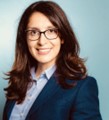 Angela Dupont, Bank for International Settlements Innovation Hub.
Angela Dupont, Bank for International Settlements Innovation Hub.
Angela Dupont is an International Innovation Expert with 20 years of experience in the banking industry. She is currently an adviser of the Eurosystem Centre of the Bank for International Settlements Innovation Hub.
She is leading a cyber security project on quantum-proofing the financial system. Prior to this role she has been working at the ACPR (The French Prudential Supervision and Resolution Authority) specialising on Fintechs. Before that she has been a team leader in different departments of Banque de France, including in a credit rating department. Mrs Angela Dupont holds an Executive MBA from ESSEC Business School and a master’s degree of banking. She is a member of Le Club de Paris des Directeurs de l'Innovation.
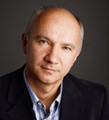 Artur Ekert, University of Oxford, National University of Singapore
Artur Ekert, University of Oxford, National University of Singapore
Artur Ekert is one of the pioneers of quantum information science. His invention of entanglement-based quantum cryptography has linked the foundational concepts of quantum theory with the study of secure communication. This has sparked a surge in global research efforts and continues to inspire new research directions. Along with his notable discovery that Bell's inequalities can be employed to detect eavesdropping, Ekert has made numerous significant contributions to the foundational understanding and experimental implementations of quantum communication and computation. His leadership and pioneering work have been instrumental in transforming the field of quantum information science from a niche academic activity into a vibrant interdisciplinary field. Ekert is the Professor of Quantum Physics at the Mathematical Institute, University of Oxford, in the United Kingdom. He is also a Fellow of Merton College, Oxford, and a Distinguished Professor at the National University of Singapore. He played a crucial role in establishing the Centre for Quantum Technologies in Singapore, serving as its founding Director. His expert knowledge has been invaluable to numerous companies and government agencies, with whom he has actively collaborated and provided counsel. Ekert's contributions to the field have been lauded with several prestigious awards, including the 1995 Maxwell Medal and Prize from the Institute of Physics, the 2007 Royal Society Hughes Medal, the 2019 Micius Prize, and the 2024 Royal Society Milner Award. He is a Fellow of the Royal Society. Beyond academia, Ekert is a passionate scuba diving instructor and pilot.
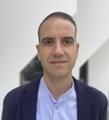 Juan Carlos Fernández, Entrust
Juan Carlos Fernández, Entrust
Juan Carlos Fernández is Senior Manager Technology Development at Entrust with more than 20 years of experience in cryptography, PKI services and, specially, in the digital signature ecosystem. He currently leads the innovation department in the Office of the CTO of Entrust where he is in charge of identifying and carrying out innovative projects to improve digital security services. Some of the projects are Post-Quantum Cryptography, Decentralized Identity, AI/ML to enhance digital security and Qualified Electronic Signatures for eIDAS2 among others. He is also lecturer at the "Universitat Oberta de Catalunya" in Barcelona teaching in the Master in Cybersecurity and Privacy.
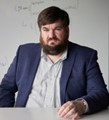 Joe Fitzsimons, Horizon Quantum Computing
Joe Fitzsimons, Horizon Quantum Computing
Joe Fitzsimons is the founder and CEO of Horizon Quantum Computing, a company advancing the widespread adoption of quantum computing by building software tools that enable all programmers to take advantage of quantum technology. Before founding Horizon Quantum Computing in 2018, Joe held a tenured position as an associate professor at the Singapore University of Technology and Design, where he led the Quantum Information and Theory group. He was also a principal investigator at the Centre for Quantum Technologies, contributing to both theoretical computer science and physics through his research. Earlier in his career, Joe spent time as a fellow of Merton College, Oxford, and a senior research fellow in the Materials Department at the University of Oxford. During this time, he co-invented the universal blind quantum computing protocol which has since become recognised as an important enabling technology for securing cloud-based quantum computing. Joe holds a doctorate from the University of Oxford, where his research focused on quantum computing architectures, and a bachelor of science degree in theoretical physics from University College Dublin.
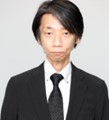 Mikio Fujiwara, NICT
Mikio Fujiwara, NICT
Mikio Fujiwara received the B.S. and M.S. degrees in electrical engineering and the Ph.D. degree in physics from Nagoya University, Nagoya, Japan, in 1990, 1992, and 2002, respectively. He has been involved R&D activities at NICT (previous name CRL, Ministry of Posts and Telecommunications of Japan) since 1992. His specializes are cryogenic semiconductor devices, photodetection, quantum key distribution and QKD network application.
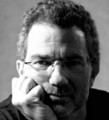 Jaime Gómez García, Banco Santander – Member of the Programme Committee
Jaime Gómez García, Banco Santander – Member of the Programme Committee
Jaime Gómez García is a recognized expert in telecommunications, blockchain, and quantum technologies, with an extensive professional background within the financial sector. His contributions as a disseminator of quantum technologies and their consequential influence on enterprises, notably within the financial domain, have garnered him recognition as a LinkedIn Quantum Top Voices in 2022, 2023 and 2024.
Currently, Jaime serves as the Head of Quantum Technologies at Banco Santander, where he focuses on leveraging quantum computing for business benefits and addresses the challenges of quantum threats to cryptography. Additionally, he holds the role of Chair of the Steering Committee at the Quantum Safe Financial Forum, working to facilitate collaboration and coordinate the transition to quantum-safe cryptography within the financial sector.
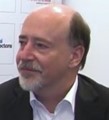 Gert Grammel, Juniper Networks
Gert Grammel, Juniper Networks
Gert Grammel is Principal Engineer at Juniper Networks where he has been working with Cloud Providers, and Service Providers on automation, optical technology, and evolution of networks. He has over 25 years of experience in various management and engineering positions and enjoys innovating networking technology and control architectures. Since 2020 Gert is spearheading Juniper’s activities in exploring the Quantum Internet. He also participates in IETF, GSMA, and ETSI-QKD and is a regular attendee and presenter at conferences.
Tobias Hemmert studied Mathematics at Cambridge University and obtained his PhD from the University of Düsseldorf. He has since worked in software development and joined the Federal Office for Information Security (BSI) as a cryptographer in 2020. He works mostly on topics in quantum-safe cryptography.
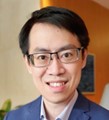 Dr. Jing Yan Haw is currently a Quantum Communications Technologist in the National Quantum-Safe Network at the Centre for Quantum Technologies, National University of Singapore. With more than 10 years of experience in quantum science research, his current responsibilities include the deployment of quantum key distribution network, quantum security validation and local/international standardisation of quantum-safe technologies. He is an editor for the Quantum Communication Networks Task Force under IMDA-TSAC Singapore. Before, he was an external consultant for the Fraunhofer Heinrich Hertz Institute, Germany on quantum networks. He holds PhD from the Australian National University on experimental quantum communications technologies.
Dr. Jing Yan Haw is currently a Quantum Communications Technologist in the National Quantum-Safe Network at the Centre for Quantum Technologies, National University of Singapore. With more than 10 years of experience in quantum science research, his current responsibilities include the deployment of quantum key distribution network, quantum security validation and local/international standardisation of quantum-safe technologies. He is an editor for the Quantum Communication Networks Task Force under IMDA-TSAC Singapore. Before, he was an external consultant for the Fraunhofer Heinrich Hertz Institute, Germany on quantum networks. He holds PhD from the Australian National University on experimental quantum communications technologies.
Tobias Hemmert - Federal Office for Information Security (BSI)
Tobias Hemmert holds a Master's degree in Mathematics from the University of Cambridge and a PhD from the University of Düsseldorf. He joined the cryptography division of the German Federal Office for Information Security (BSI) in 2020 and mostly works on topics in post-quantum cryptography and quantum key distribution.
Changho Hong, ITSCC
[Studying field] : Quantum Cryptography (Quantum Identification; Quantum Signature; Quantum Direct Communication; etc.)
· 2011~2015 Research Professor at Korea University
· 2015~present Principal Investigator at ITSCC
Avesta Hojjati, DigiCert
Dr. Hoijati is the Head of R&D and VP of engineering at DigiCert, where he plays a pivotal role in advancing cybersecurity product development and shaping M&A strategy. His career spans roles at Symantec and Yahoo's security team, contributing to product strategy and security enhancements. Renowned for his research in computer security and privacy, particularly in side-channel attacks on medical devices and 3D printers, Dr. Hojjati has authored several academic papers. He is a member of the IACR, a board member at Rutgers University, Sovrin Foundation, and ID4me AISBL. He holds a B.S. from Texas Tech University and an M.S. & Ph.D. from the University of Illinois at Urbana-Champaign.
Jan Klaußner, Bundesdruckerei
Jan Klaußner studied computer science with focus on cryptography and security at TU Dresden and worked in the IT-Security industry ever since. Several years developing high grade security products provided him a deep understanding of the possibilities and challenges around smart cards and Public Key Infrastructures. Finally, he joined his team at the Bundesdruckerei in 2021 to improve and promote innovative ideas around PKIs and post quantum cryptography.
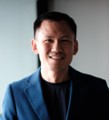 Wee Sain Koh, Infocomm Media Development Authority
Wee Sain Koh, Infocomm Media Development Authority
Wee Sain Koh, Cluster Director for Engineering at Singapore’s Infocomm Media Development Authority (IMDA). He is the technology lead for frontier tech such as future communications and connectivity, AI, Quantum and Trust Technologies, supporting IMDA’s efforts in R&D and translational work for tech development and deployment. Mr Koh has also played a pivotal role in the establishment of critical communication systems for dormitories during COVID-19 crisis and previously drove the development of Singapore’s national broadband network. Looking forward, Mr Koh is looking to pursue the next-generation of communications, which includes developing a national quantum-safe network to build a Quantum-safe Singapore in the next decade.
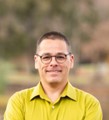 Hubert Le Van Gong, JPMorgan Chase
Hubert Le Van Gong, JPMorgan Chase
Dr. Hubert Le Van Gong is a Managing Director and a Distinguished Engineer in Global Cybersecurity at JPMorgan Chase. There, he leads the firm’s post-quantum cryptography (PQC) modernization program and cryptography strategy. Prior to joining JPMorgan Chase, Dr. Le Van Gong was the head of PayPal’s Emerging Technology Research where he was leading applied research on advanced cryptography topics including PQC. Before that, Hubert has held various positions at Sun Microsystems, Neustar and Sony Electronics. He has received a PhD. in computer science in Paris, France, holds many patents and has published and spoken in academic and industry conferences.
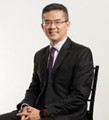 Chuen Hong Lew, Infocomm Media Development Authority IMDA
Chuen Hong Lew, Infocomm Media Development Authority IMDA
Mr Lew Chuen Hong was appointed Chief Executive of the Infocomm Media Development Authority (IMDA) in June 2020.
IMDA oversees the Digital Tech and Media domains and is unique in having three crucial roles. As an economic developer creating jobs, investing in innovation and R&D, and driving enterprise technology adoption; as a progressive regulator ensuring secure and resilient digital infrastructure, as well as a trusted data ecosystem (concurrently as the Personal Data Protection Commission), and as a social leveller championing digital inclusion and ensuring no one is left behind. As “Architects of Singapore’s Digital Future”, IMDA aims to push boundaries by bridging these three roles, to build a dynamic digital economy and a cohesive digital society, driven by an exceptional Tech and Media ecosystem.
Mr Lew graduated with a Bachelors (Honours and Distinction) and Masters in Biology from Stanford University, USA. He also holds a Masters in Management, as a Sloan Fellow of the Stanford Graduate School of Business, USA. He also attended the School of Economics and Management (SEM)’s Executive Course at TsingHua University in 2009. Mr Lew joined IMDA following a distinguished 25-year career with the Republic of Singapore Navy where he reached the pinnacle position of Chief of Navy, serving from 2017 to 2020. He was conferred the SAF Overseas Service Medal as part of Singapore’s Naval deployment to the North Arabian Gulf, supporting the re-construction of Iraq. In 2008, Mr Lew was seconded to the Ministry of Trade & Industry where he championed pro-enterprise policies to help local enterprises scale. He also drove the strategic review of the Research, Innovation, and Enterprise 2015 plan which set out Singapore’s strategy and investments to grow our knowledge-driven economy.
Among his other appointments, Mr Lew also serves on the Board of Singapore’s Office for Space Technology and Industry (OSTIn) and Government Technology Agency. Mr Lew had previously served on the Boards of the Duke-NUS Graduate Medical School, the Maritime and Port Authority of Singapore, and ST Engineering. He was Chairman of the School of Applied Science Advisory Committee Board, Republic Polytechnic.
 Xianhui Lu, Institute of Information Engineering, Chinese Academy of Sciences
Xianhui Lu, Institute of Information Engineering, Chinese Academy of Sciences
Xianhui Lu is the leader of the cryptography theory and technology research department in the Institute of Information Engineering at Chinese Academy of Sciences. He received his Ph.D. in information security from Southwest Jiaotong University in 2009. His research focuses on provable security, lattice based cryptography, post-quantum cryptography, fully homomorphic encryption and physical layer cryptography. He is the principal designer of LAC, which is a lattice based public encryption scheme submitted to the NIST Post-Quantum Cryptography "Competition". He is an expert of ISO/IES JTC1 SC27 WG2 mainly contributed to post-quantum cryptography and homomorphic cryptography projects. He is the leader of several research projects funded by the National Key R&D Program of China, mainly focus on quantum-resistant solutions in the sector of mobile communication, financial services, block chain, power network and health information systems.
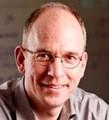 Norbert Lütkenhaus, Institute for Quantum Computing (IQC), Faculty member of the Department of Physics and Astronomy at the University of Waterloo, co-founder and CTO of evolutionQ.
Norbert Lütkenhaus, Institute for Quantum Computing (IQC), Faculty member of the Department of Physics and Astronomy at the University of Waterloo, co-founder and CTO of evolutionQ.
Norbert Lütkenhaus is the Executive Director of the Institute for Quantum Computing (IQC), faculty member of the Department of Physics and Astronomy at the University of Waterloo, and co-founder and CTO of evolutionQ. He began researching quantum information in 1993, earning his PhD from the University of Strathclyde in Scotland, UK. His PhD research built the foundation of the ongoing security analysis of optical implementations of quantum key distribution (QKD), leading to the first complete security analysis of practical QKD. His current research is at the intersection between theoretical quantum protocols and practical realizations, and developing quantum optical versions of protocols that realize quantum communication and information complexity advantages. His career has included research positions in Austria, Finland, and Germany. He has spent time in industry, working on the first commercial realization of quantum key distribution in 2000. He has also authored several patents and is co-founder and CTO of evolutionQ Inc. He serves on the Advisory Board of several international high profile research networks, conference, and workshop series, and also serves as Vice-Chair of the ETSI Industry Specification Group on Quantum Key Distribution. He is an Affiliate Member of the Perimeter Institute for Theoretical Physics. His international leadership is recognized through his election as Fellow of the American Physical Society.
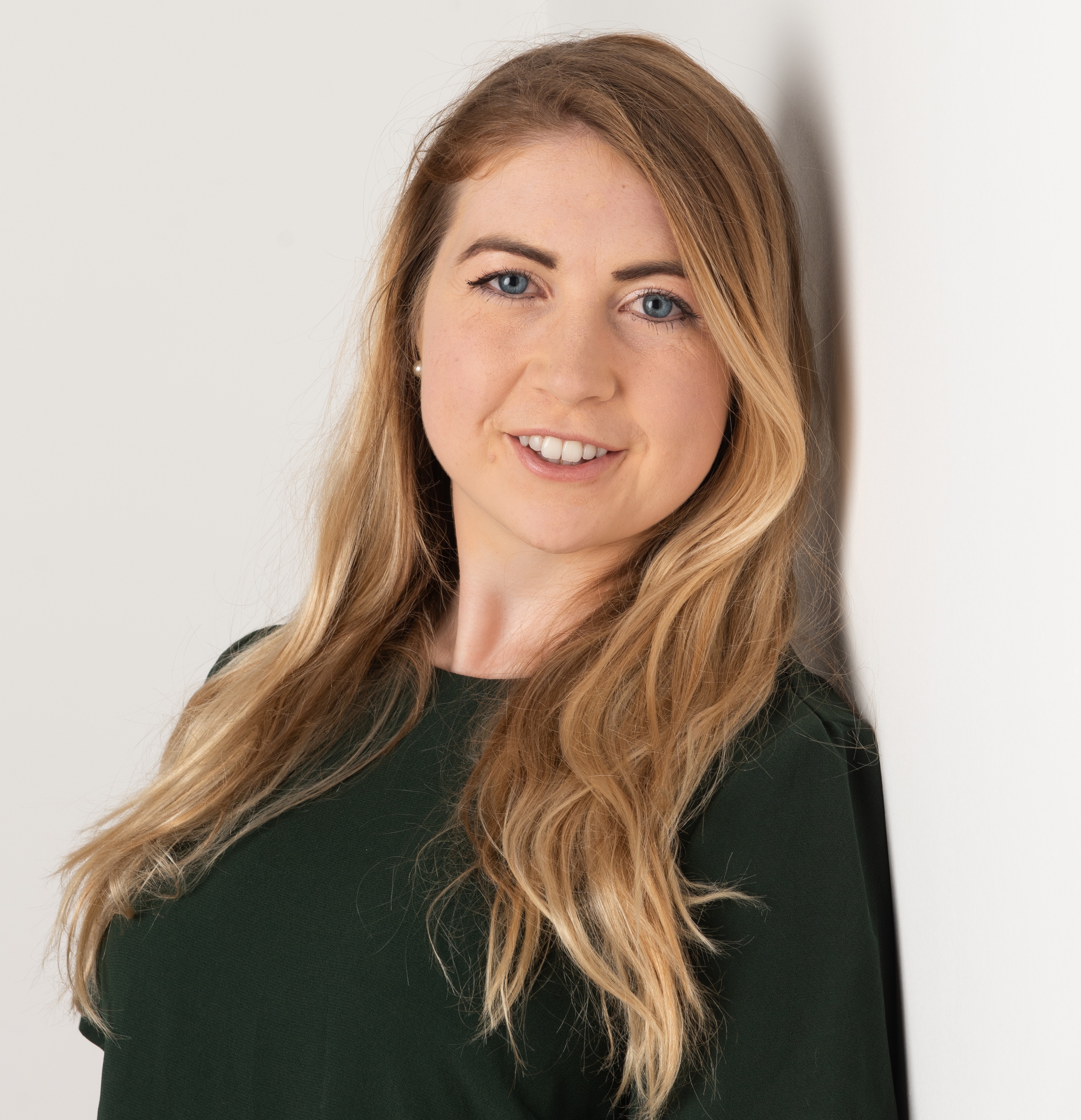
Sarah McCarthy - Institute for Quantum Computing (UWaterloo) - Member of the Programme Committee
Sarah McCarthy is a quantum-secure cryptography specialist with a focus on practical solutions for current and future communications networks. As Cryptographic Strategist at evolutionQ, she drives the development of quantum-safe network solutions and raises awareness about the importance of preparing for the quantum computing era. This is supported by her Research Associate role at the Institute for Quantum Computing (IQC), part of University of Waterloo, which allows her to keep in touch with the progression of quantum-safe solutions, from theory to deployment. Sarah earned her PhD from Queen’s University Belfast and then completed a Postdoctoral Fellowship at IQC.
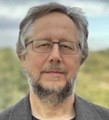 Vicente Martin, Universidad Politécnica de Madrid - CCS
Vicente Martin, Universidad Politécnica de Madrid - CCS
Vicente Martin, Full Professor at the Technical University of Madrid, Deputy Director of the Center of Computational Simulation, coordinates the Research Group on Quantum Information and the DIANA NATO Test Centre on Quantum Communications at Madrid, the current Madrid Quantum Communications Infrastructure and Spanish national program on quantum communications. He also works in standards on QKD. Co-founder of the Industry Specification Group on Quantum Key Distribution and its vice-chair at ETSI. Convener of the Quantum cryptography and Communications Workgroup of the JTC-22 at CEN. His main research interest is the integration of Quantum Communications in Telecommunications Networks and security infrastructures.
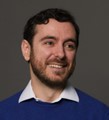 Alejandro R.P. Montblanch, HSBC
Alejandro R.P. Montblanch, HSBC
Alejandro R.-P. Montblanch is currently leading the quantum communications and quantum networking efforts at HSBC, one of the largest financial institutions in the world. In this role, he has completed the first connection of a financial institution to the London commercial quantum network and has pioneered the use of quantum key distribution for FX trading. Previously, he was a postdoc at QuTech (Delft, NL) experimentally developing the Quantum Internet, after having completed a PhDas a Marie-Curie scholar at the University of Cambridge (Cambridge, UK) on novel, atomically thin platforms for quantum networks, including a scholar visit to Harvard.
 Dustin Moody - National Institute of Standards and Technology
Dustin Moody - National Institute of Standards and Technology
Dustin Moody is a mathematician in the NIST Computer Security Division.
Dustin leads the post-quantum cryptography project at NIST. He received his Ph.D. from the University of Washington in 2009.
His area of research deals with elliptic curves and their applications in cryptography
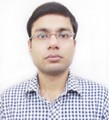 Arka Mukherjee, C-DOT
Arka Mukherjee, C-DOT
Arka works as a Team Leader at the Centre for Development of Telematics (C-DOT), India and is responsible for the hardware design aspects of quantum key distribution (QKD) development. He has more than 11 years of experience in designing embedded hardware for optical access networks and QKD systems. He is a gold medalist in Master of Science
(Research) from the Indian Institute of Technology, Delhi and holds a Bachelor’s degree in Electronics and Tele- communication Engineering from Jadavpur University, Kolkata, India. He has authored multiple technical articles in peer- reviewed international journal, technical magazines, and conferences.
Bill Newhouse- National Institute of Standards and Technology
Bill Newhouse is a cybersecurity Engineer at the National Cybersecurity Center of Excellence at the National Institute of Standards and Technology, a bureau of the U.S. Department of Commerce. His work pushes for the adoption of cybersecurity standards, and he is co-leading two projects presently, the Migration to Post-Quantum Cryptography Project and a Data Classification Project. Mr. Newhouse has been with the U.S. Federal government since 1986 and with NIST since 2010. He studied Electrical Engineering at the Georgia Institute of Technology and has a master’s degree from the George Washington University.
Simon Patkovic, IDQuantique
An established cybersecurity veteran, Simon Patkovic is dedicated to the ever-evolving, complex dynamics of cyber innovation and governance, and how they impact Government, Telecom, and Fortune 500 organization Leaders, Boards, and IT Executives. Simon is an active participant in private-public consultations with national security and intelligence agencies throughout the Middle East, Europe, and Asia, with a focus on data surveillance and lawful intercept, security regulations, and privacy issues. His post-graduate education includes Master degree in Technology Governance at Solvay Brussels School of Economics and EMBA at Harvard Business School.
 Mark Pecen, Approach Infinity Inc. , Member of the Programme Committee
Mark Pecen, Approach Infinity Inc. , Member of the Programme Committee
Mark Pecen is a senior technology executive for Approach Infinity, Inc., and a general partner of a venture capital fund. Pecen is an inventor on more than 100 fundamental patents in wireless communication, networking and computing, and is a graduate of the University of Pennsylvania, Wharton School of Business and the School of Engineering and Applied Sciences. He was awarded the titles of Distinguished Innovator and Science Advisory Board member by Motorola for his work on GSM, GPRS and EDGE cellular technologies at ETSI. He led work in 3GPP for Motorola on UMTS 3G, and as Senior Vice President, R&D for BlackBerry, he contributed to 4G-LTE cellular technology and standards and spectrum management for ITU. In 2015, Pecen co-founded the ETSI TC Cyber, Working Group for Quantum Safe Cryptography and chaired the group for the first 5 years, producing some of the very earliest global standards on the topic.
Bertram Poettering, IBM
Bertram is a researcher staff member affiliated with IBM Research Europe -- Zurich. The research he conducted in the past 15 years covers all aspects of practical cryptography, ranging from symmetric to asymmetric and from foundational work to implementational aspects, and resulted in 60 peer-reviewed publications at international venues.
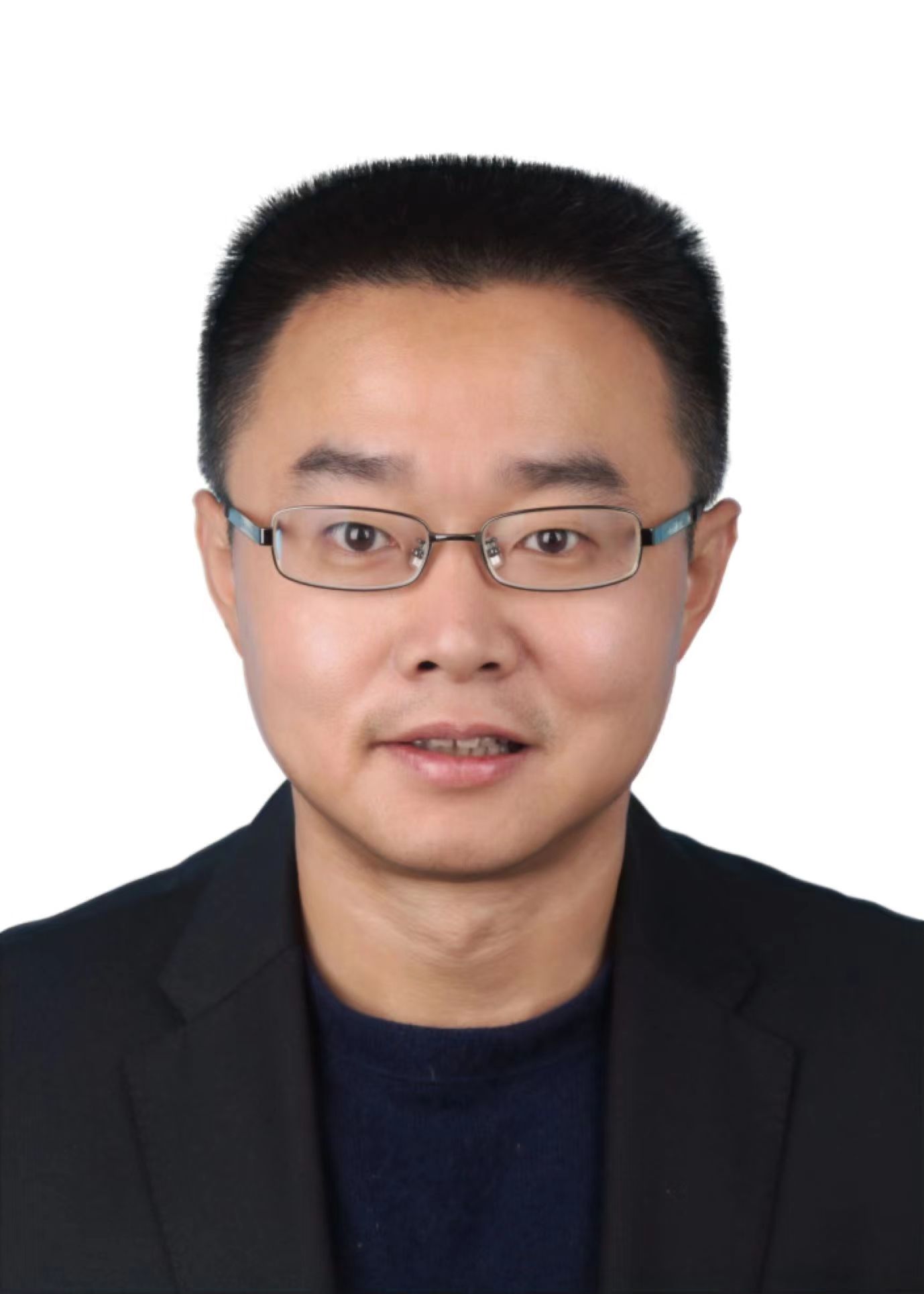 Dr. Wei Qi is the CEO of CAS Quantum Network Co., Ltd
Dr. Wei Qi is the CEO of CAS Quantum Network Co., Ltd
Wei Qi is the Chairman of China Communications Standards Association (CCSA) Special Task Force (ST7) on Quantum Communication and Information Technology, also the Vice Chairman of Quantum Information Network Industry Alliance in China. He is committed to the industrial development of quantum communications
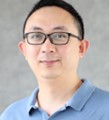 Hao Qin, Centre for Quantum Technologies
Hao Qin, Centre for Quantum Technologies
Hao Qin is a senior researcher in National Quantum-Safe Network, affiliated with Centre for Quantum Technologies, National University of Singapore (NUS). He is the cofounder and the co-chair of Quantum Communication Networks Task Force under IMDA TSAC Singapore. He has been contributing to standardization works on quantum communication in ITU-T, ISO and ETSI. He is the associate rapporteur of ITU-T Q15/17 “Security for/by emerging technologies including quantum-based security” and the vice chair of ITU joint coordination activity on quantum key distribution network (JCA QKDN). He is the NUS focal point for ETSI and ITU. He has more than ten years of academic and industry experiences on quantum communication in world leading institutions from Europe, North America, and Asia. His research focus on practical aspects of quantum communication, including implementation security & testing, key managements, use cases, standardization & certification. He holds PhD from TELECOM Paris and MSc from TELECOM Bretagne.
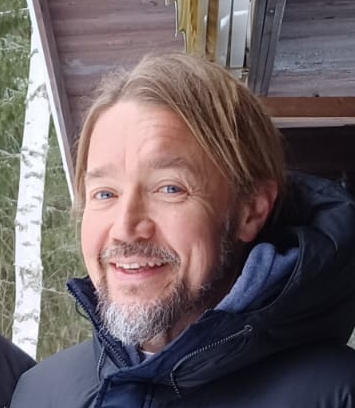 Markku-Juhani O. Saarinen is the Chair of PQC Task Group at RISC-V International. Markku is a Professor of Practice at the University of Tampere and a Staff Cryptography Architect with PQShield Ltd. He has worked in cryptography and security engineering for over 25 years and is currently also serving as the Artifact Chair for IACR CHES 2024 and program co-chair of PQCrypto 2024. Markku holds a PhD in Information Security from Royal Holloway, University of London (2009).
Markku-Juhani O. Saarinen is the Chair of PQC Task Group at RISC-V International. Markku is a Professor of Practice at the University of Tampere and a Staff Cryptography Architect with PQShield Ltd. He has worked in cryptography and security engineering for over 25 years and is currently also serving as the Artifact Chair for IACR CHES 2024 and program co-chair of PQCrypto 2024. Markku holds a PhD in Information Security from Royal Holloway, University of London (2009).
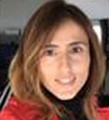 Yolanda Sanz, GSMA
Yolanda Sanz, GSMA
Yolanda Sanz is Senior Director at GSMA. She oversees different technical working groups within GSMA that the main goal to create technical specifications on different telco industry matter such as eSIM. About two years ago, GSMA stablished the first Telco industry group called "Post Quantum Telco Network Group" to look after the Post Quantum Cryptography impact in the context of telco networks. Yolanda Sanz is leading this group since then and try to guide the telco industry to the transition of the Post Quantum Era. Additionally, Yolanda Sanz is managing GSMA Quantum, networking and service group that trying to analyze how the quantum technologies can benefit the telco networks to optimize data processing, enhance security, and improve network efficiency.
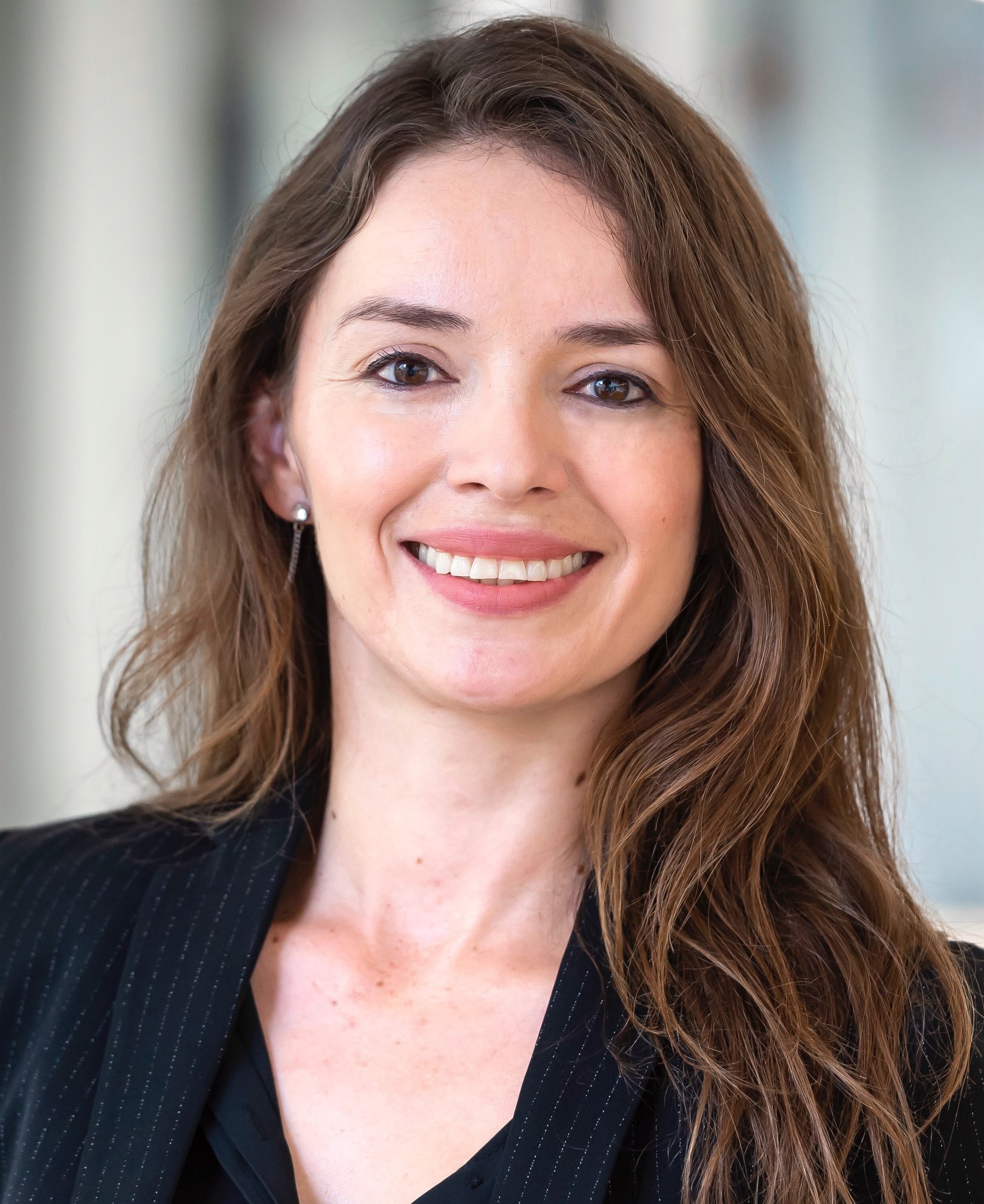 Johanna Sepúlveda Airbus - Member of the Programme Committee
Johanna Sepúlveda Airbus - Member of the Programme Committee
Johanna Sepúlveda received her M.Sc. and Ph.D. degrees in Electrical Engineering – Microelectronics by the University of S ̃ao Paulo, Brazil. Currently she holds a position as the Airbus Expert on Quantum-Secure Technologies, being Chief Engineer of different quantum initiatives such as EuroQCI. Also she is a member of the Strategic Advisory Board of Quantum Technologies for the European Commission and leader of the Quantum Strategic Industry Roadmap at QuIC (Quantum Industry Consortium). She has more than 15 years of experience in R&T and R&D in the area of security, networked systems, HPC and quantum technologies.
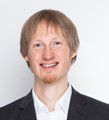 Ulrich Seyfarth, BearingPoint GmbH
Ulrich Seyfarth, BearingPoint GmbH
Ulrich Seyfarth did his PhD at TU Darmstadt about security analysis of QKD protocols and fundamentals about quantum technologies. He worked with experts of PQC and moved to MPL in Erlangen to explore analysing methods for quantum technologies. As a manager he's now responsible for BearingPoint's activities on quantum technologies.
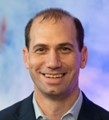 Mike Silverman, FS-ISAC
Mike Silverman, FS-ISAC
Mike is the VP of Strategy and Innovation at FS-ISAC. Mike is leading efforts with members on Post-Quantum Cryptography, Artificial Intelligence Risk, FS-ISAC’s Summit Content, FSSCC Workstream on Cloud Service Providers, OpenSSF Secure Computing, Fraud Intelligence Sharing, and more.
Mike started working with Artificial Intelligence in 1996 and had papers published in '98 and '02. Mike has a section in the book "97 Things Every Cloud Engineer Should Know," released in Dec ’20.
Yoshimichi Tanizawa is a chief research scientist at Toshiba Corporation Corporate Research & Development Center. He received his M.S. degree in Engineering from Keio University in 2002. His research interests include QKD (quantum key distribution) and its network system technologies. He is a vice chairperson of Quantum Key Distribution Technology Promotion Committee, Quantum ICT Forum. He is rapporteur of ETSI GS QKD 014 "Quantum Key Distribution (QKD); Protocol and data format of REST-based key delivery API" in ETSI ISG-QKD.
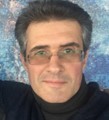 Vladimir Tsitrin is an Information Security professional with 25+ years of extensive experience in Identity and Access Management, Cryptography, Cryptocurrencies and Quantum Security. As a Security Architect at Fidelity Investments Vladimir played a key role in architecture, design and implementation of the first releases of the transaction processing and key management systems for the cryptocurrencies products. As a Quantum Security Research Lead at Fidelity Center for Applied Technology (FCAT) Vladimir built the first Fidelity's quantum-secured network.
Vladimir Tsitrin is an Information Security professional with 25+ years of extensive experience in Identity and Access Management, Cryptography, Cryptocurrencies and Quantum Security. As a Security Architect at Fidelity Investments Vladimir played a key role in architecture, design and implementation of the first releases of the transaction processing and key management systems for the cryptocurrencies products. As a Quantum Security Research Lead at Fidelity Center for Applied Technology (FCAT) Vladimir built the first Fidelity's quantum-secured network.
Stefan van den Berg, TNO
Stefan studied at the university of Eindhoven. He graduated in both masters Information Security Technology and Embedded Systems. Currently he works as a scientist in the department Applied Cryptography and Quantum Algorithms at TNO, the Dutch national organization for applied scientific research. His work focuses on development of various Privacy-Enhancing Technologies, Post-Quantum Cryptography solutions and Quantum Applications.
Colin Whorlow, NCSC - Member of the Programme Committee
Colin Whorlow has worked in the UK National Cyber Security Centre (NCSC), and its predecessor CESG, for over 20 years. As Head of International Standards he has spearheaded NCSC’s active involvement in global security standards work including within ETSI and 3GPP. He convened the ETSI Quantum Safe Cryptography ISG, now a Working Group within TC Cyber, and has also chaired the group – and he is a Programme Committee member for the annual ETSI/IQC Quantum-safe Cryptography workshops. He also convened the ETSI Securing AI ISG, now TC SAI. Colin was a long-time member of the Management Board of ENISA, and is a former chair of the CCRA Management Committee. In previous roles he led CESG’s engagement on EU and NATO information assurance issues. Colin also chaired the Information Security Technical Working Group at the Wassenaar Arrangement for some years. Colin was awarded an OBE for services to National Security in 2024.
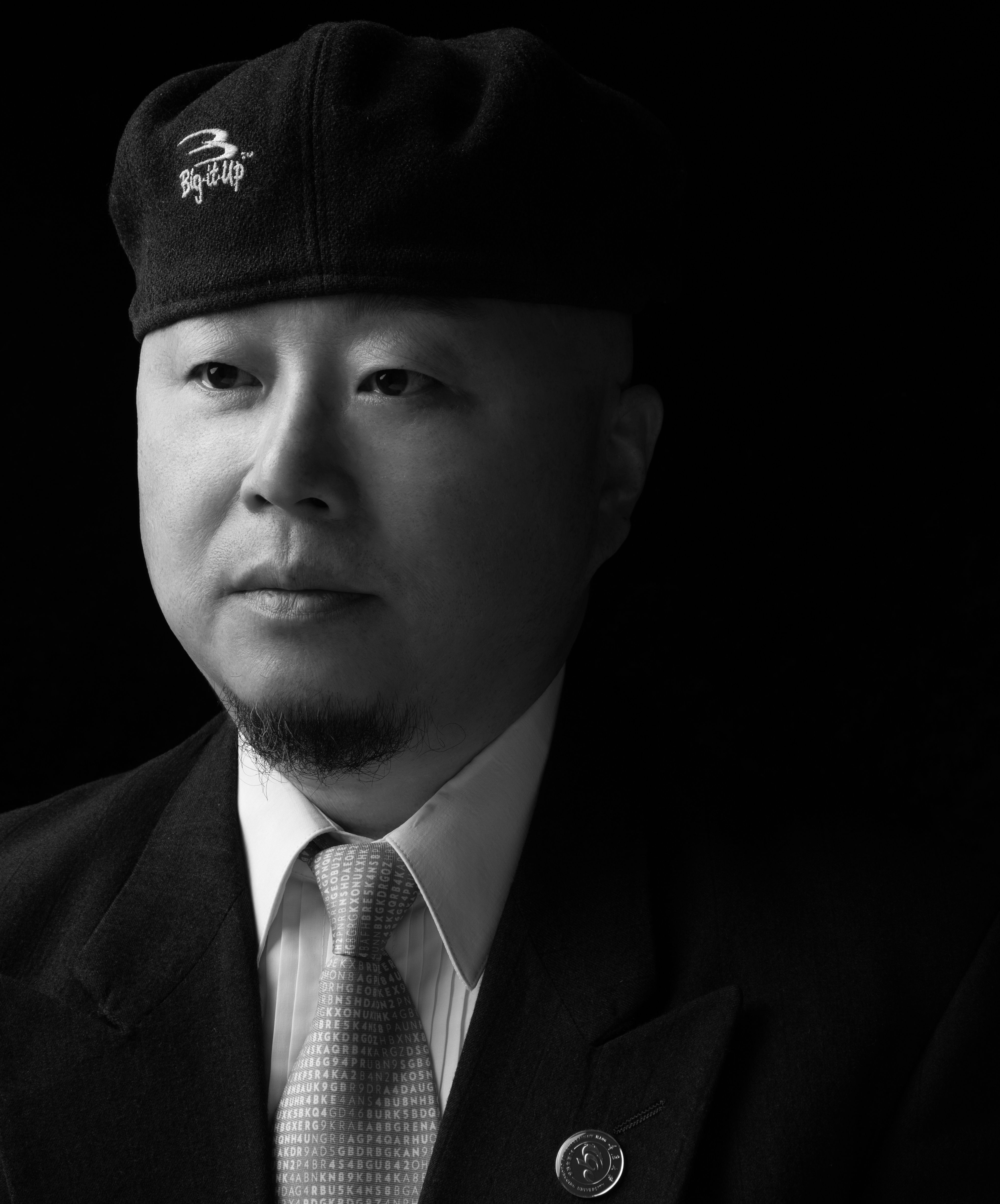 Hong Xiang - Chongqing University - Member of the Programme Committee
Hong Xiang - Chongqing University - Member of the Programme Committee
Prof. Hong Xiang is the member of National Cryptography Standardization Technical Committee, China. He also serves as the vice director of the Key Laboratory of Dependable Service Computing in Cyber Physical Society (Chongqing University), Ministry of Education, China. He received his Ph.D. from the University of Alberta, Canada in 1998. His area of research deals with applications in PQC.
Chengjun Zhou is a professor, the director of Research Institute of the People’s Bank of China. Dr. Zhou’s research area includes macroeconomics, China’s economic and financial system reform, and international economics and finance. He has presided over or participated in a number of National Major Programs, China Postdoctoral Science Foundation programs and National Social Science Foundation programs, and achieved for many times the highest award of the annual Key Research Program of PBOC. Since 2000, Mr. Zhou has published over 100 academic papers and essays in various publications and journals.
 Jim Zou, Adtran Networks SE
Jim Zou, Adtran Networks SE
Dr. Jim Zou joined ADVA Optical Networking (now Adtran Networks), Germany, in 2016, currently leading emerging initiatives within Global Business Development. He is part of the Product Solution team for new technology introduction. He actively participates in many SDOs like O-RAN Alliance, ITU-T SG15, CableLabs, Quantum Communication Networks Task Force at TSAC Singapore, and other industrial MSAs. Prior to that, he was a Principal Engineer leading EU- and national-funded research projects in the area of optical access and quantum security. He received the PhD degree from Eindhoven University of Technology, The Netherlands, in 2015. He is currently serving on the OFC technical program committee, and also an associate editor for IEEE/Optica JOCN, looking after the topics of access/metro networks and quantum security. He has co- and authored more than 60 scientific papers, and holds several international patents which lead to commercial products.
Venue
The event, hosted by the Centre for Quantum Technologies, National University of Singapore will be taking place at the Catapult
1 Rochester Park, #02-01 Rochester Commons, Singapore 139212
Hotels
The organizers recommend two hotels :
- Citadines Connect Rochester – same building as the conference venue
Use this booking form to make your reservation at the Citadines. - Park Avenue Rochester – Across the street less than 100m walk
Use this booking form to make your reservation at the Park Avenue Rochester
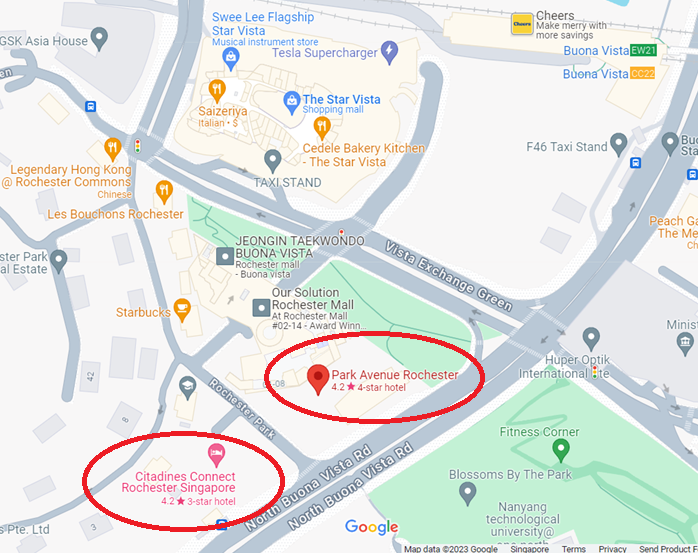
Visa Request
Should you need an invitation letter, please make your request here selecting the term WORKSHOP in the field Technical Body/Plugtests/Workshop.
Visitors holding the passport of the below countries will require a visa application, you can refer to this website for more information on the visa application.
More details on Singapore Visa requirements: https://www.ica.gov.sg/enter-transit-depart/entering-singapore/visa_requirements

